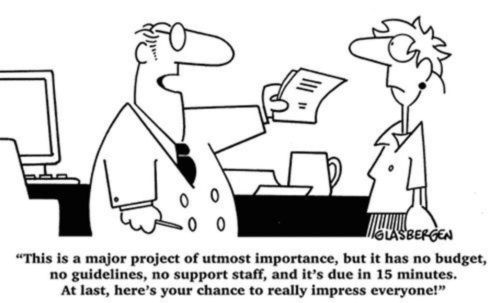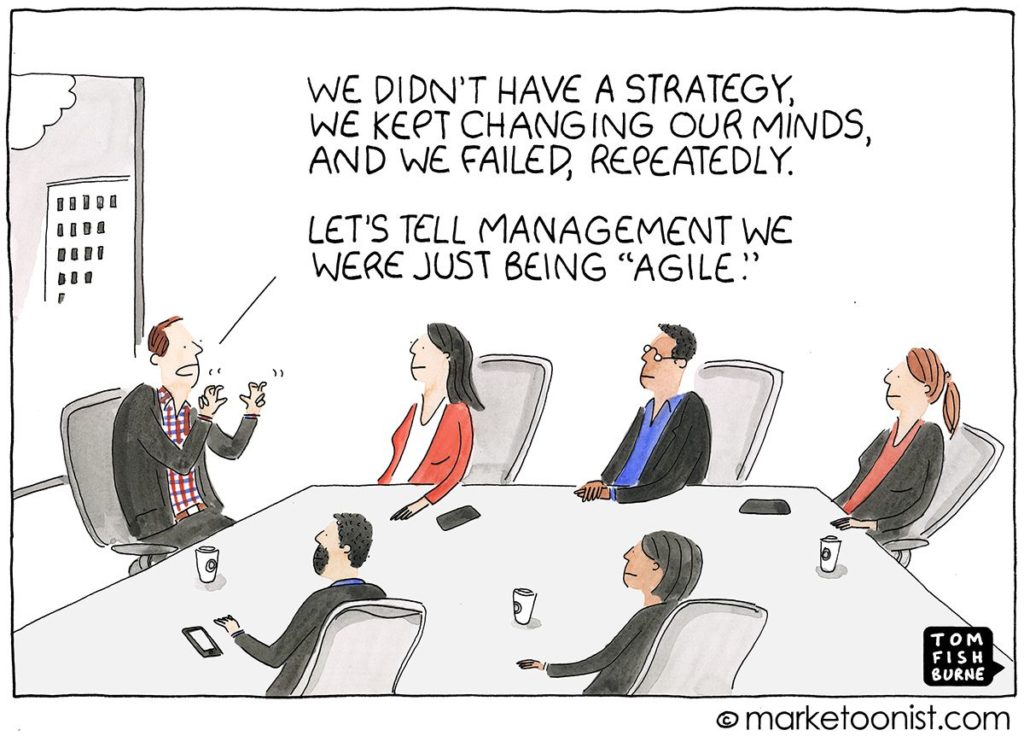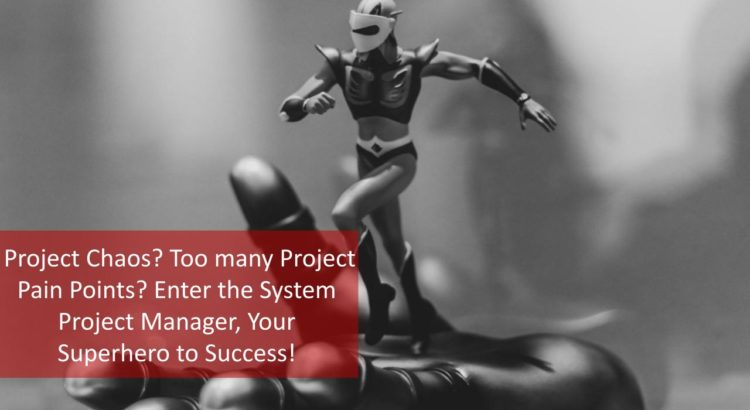Imagine a project – ambitious, complex, with a million moving parts. Deadlines loom, stakeholders fret, and features keep multiplying faster than rabbits in a hat. That’s where the System Project Manager (SPM) swoops in, cape billowing (figuratively).
- Unveil the key differences and synergies in project leadership between System Project Managers and Scrum Masters
These project ninjas 🥷 are the secret weapon against:
- Scope Creep Creepers: They keep project features in line, ensuring your vision doesn’t balloon into a budget-busting behemoth.
- Communication Craters: They bridge the gap between technical jargon and plain English, keeping everyone on the same page (and out of the silos).
- Resource Rascals: They’re masters of resource allocation, ensuring the right people are tackling the right tasks at the right time.
- Risk Ravagers: They foresee potential pitfalls and craft ingenious plans to dodge them, keeping your project safe from nasty surprises.
- Integration Imps: Multiple systems causing a meltdown? Not on their watch! They ensure seamless collaboration between technologies, keeping your project humming.
- Cost Calamities: Budget blowouts? Not a chance. They keep a watchful eye on spending, ensuring every penny delivers value.
- Stakeholder Sirens: They navigate the stormy seas of stakeholder expectations, keeping everyone informed and aligned.
- Quality Quashers: Delivering a shoddy product is a cardinal sin. They champion quality control, ensuring your project shines.
- Schedule Slippers: Deadlines are their middle name. They create realistic timelines and keep projects on track, no matter the storm.
- Change Chameleons: The business world is a whirlwind. They adapt to shifting priorities with grace, ensuring your project stays relevant.
Disrupt Your Industry. Become a System Project Manager with our Sandbox Membership
System Project Managers – the ultimate project problem-solvers, ensuring your ambitious endeavors land with a triumphant BOOM!
Now that we have your attention, let us explore in further detail each component mentioned above, how System Project Managers can be helpful to organizations, businesses, and governmental agencies.
- Learn more about why Christian Louboutin is the System Project Manager you didn’t know you needed
System Project Managers tackle a complex web of challenges inherent in large-scale, enterprise-wide projects. These pain points often cascade from project complexity, stakeholder dynamics, and the ever-present pressure to deliver results.
If you are not CAPM or PMP certified yet, you can start your journey today by enrolling in Master of Project Academy’s PMP and CAPM courses:
- Self-paced PMP Certification Training
- PMP® Online Class Virtual Training
- Self-paced CAPM Certification Training
- CAPM® Online Class Virtual Training
Let’s discuss the key pain points SPMs solve:
1. Complex System Integration
Pain Point: Complex projects often involve integrating various subsystems and components that may have different operating parameters, technologies, and interfaces. Ensuring these components work harmoniously together is a major challenge.
Solution: System project managers specialize in overseeing the integration process, ensuring compatibility and functional cohesion between disparate system parts. They utilize integration testing and system architecture principles to ensure seamless system functionality, mitigating integration risks by planning and testing thoroughly.
- Read more about the project plan
- Check out a project plan example
2. Scope Creep
Pain Point: Projects often suffer from scope creep, where the initial requirements expand gradually without proper checks, leading to delays, budget overruns, and resource strain.
Solution: System project managers keep a rigorous check on the project scope using robust requirement management and change control processes. They ensure all changes are evaluated for impact and appropriately documented, maintaining clear communication with stakeholders about the implications of scope changes.

3. Resource Allocation and Utilization
Pain Point: Mismanagement of resources, including human resources, technology, and time, can lead to inefficiencies and increased costs.
Solution: Through meticulous planning and monitoring, system project managers optimize resource allocation and utilization. They employ project management tools and techniques to track resource usage and adjust allocations dynamically to meet project demands.
4. Stakeholder Communication and Alignment
Pain Point: Projects often have multiple stakeholders with varying interests and expectations. Misalignment among stakeholders can lead to conflicts and misunderstandings, impacting project outcomes.
Solution: System project managers facilitate clear and continuous communication with all stakeholders. They ensure that expectations are managed through regular updates and feedback sessions. This ongoing dialogue helps align diverse stakeholder groups around common goals and mitigates conflicts.
- Read more about the essential role of soft skills in career and leadership
5. Quality Assurance
Pain Point: Maintaining the quality of the final deliverable in a complex project environment, where multiple subsystems and components must function perfectly together, is challenging.
Solution: System project managers implement rigorous quality assurance processes, including regular audits, reviews, and testing phases throughout the project lifecycle. They ensure that every component meets the required quality standards before final integration, thereby safeguarding the overall system quality.
6. Risk Management
Pain Point: Projects inherently carry risks, including technological failures, market changes, or regulatory issues. Inadequate risk management can lead to project failures.
Solution: System project managers conduct thorough risk assessments and develop mitigation strategies for potential risks. They use tools like risk matrices and software to predict and prepare for risks, ensuring the project remains on track even when unexpected issues arise.
- You can read our article about Amazon’s ‘Fail Fast, Fail Forward’ approach to achieve effective project management
7. Compliance and Regulatory Adherence
Pain Point: Especially in highly regulated industries, projects must comply with numerous standards and regulations. Non-compliance can lead to legal and financial repercussions.
Solution: System project managers ensure that all project activities are compliant with relevant laws and regulations. They keep updated with changes in regulatory frameworks and integrate compliance checks into the project workflow, often collaborating with legal and compliance experts.
- Read more about the lucrative opportunities in infrastructure for Project Managers, System Project Managers, and Business Analysts
8. Change Management
Pain Point: Adapting to changes efficiently without disrupting the project flow is essential, as changes are inevitable in any project.
Solution: System project managers develop flexible project plans that can accommodate changes without significant disruptions. They manage the change process systematically to ensure that transitions are smooth and all team members are quickly brought up to speed with new requirements.

Bottom Line
By addressing these pain points, system project managers play an indispensable role in ensuring projects are delivered successfully, meeting all technical specifications, staying within budget, and achieving stakeholder satisfaction. Their expertise in navigating the complexities of project management makes them invaluable leaders in any project-driven organization.
